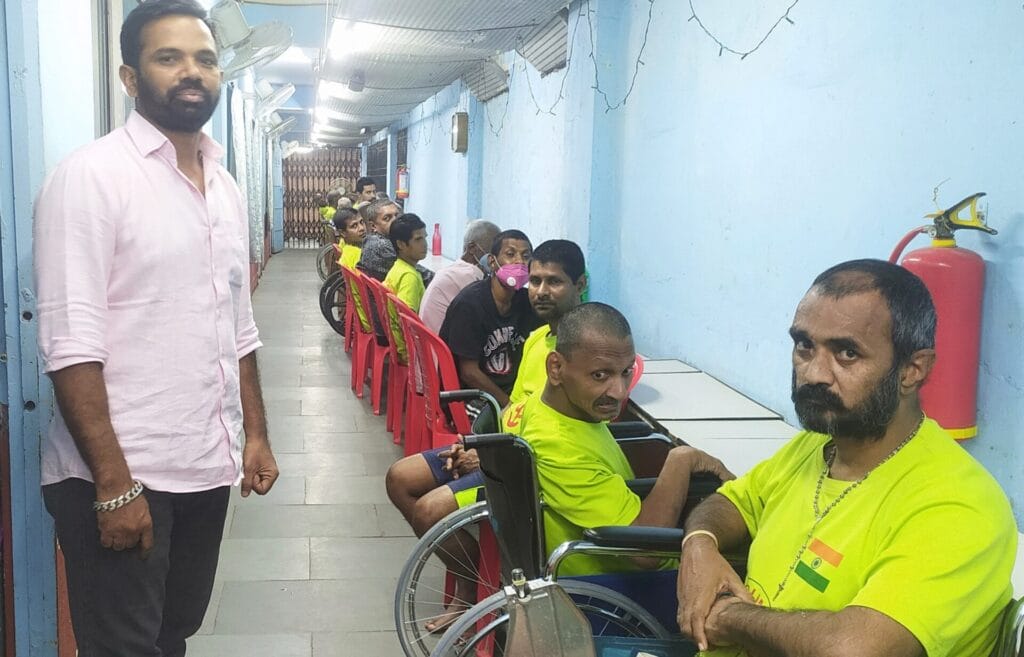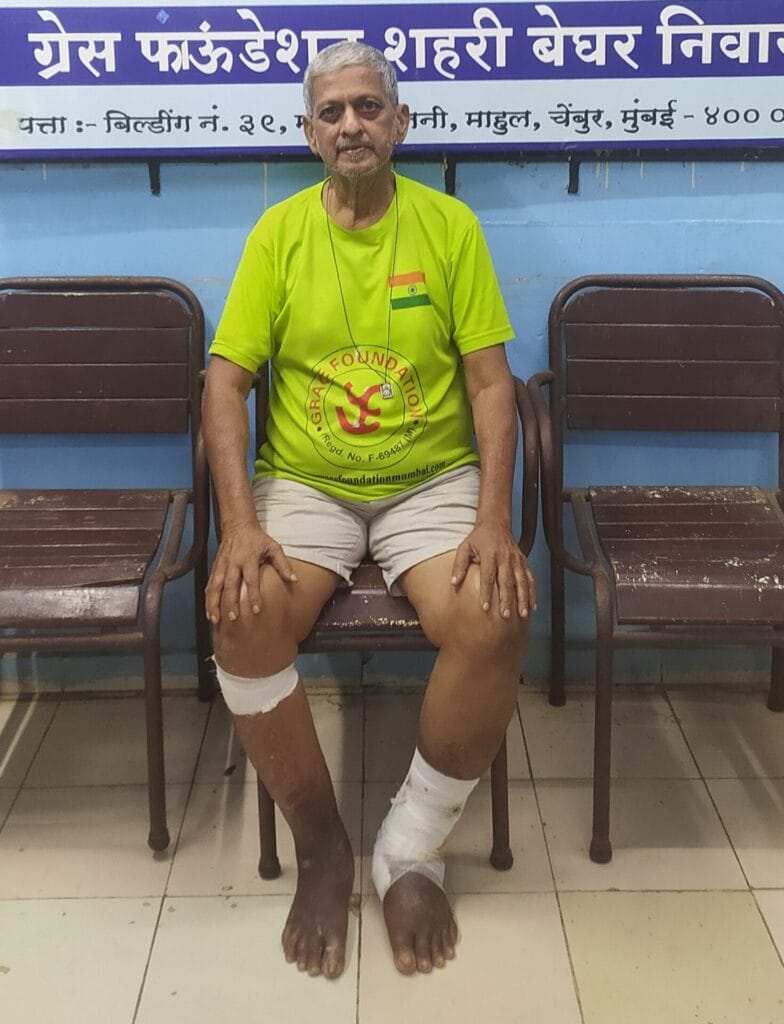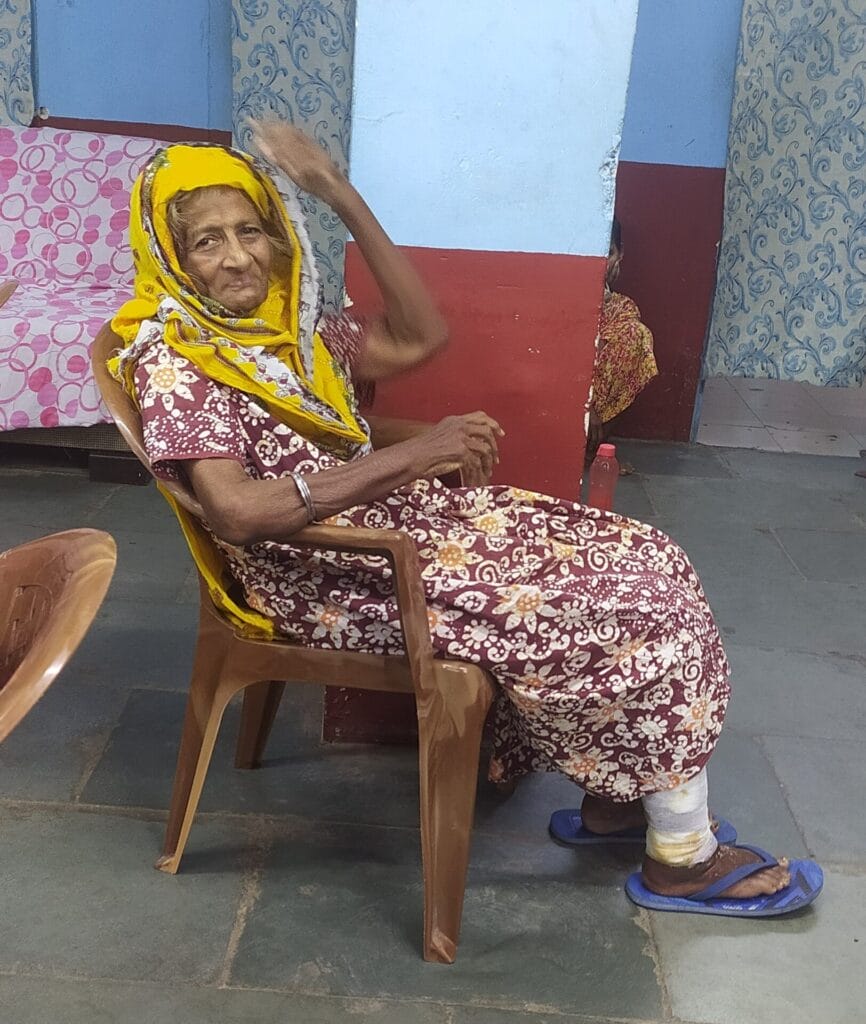The elderly population in India is rapidly rising with those above 60 years of age set to constitute 15% of the population by 2036 (22.7 crore), according to the India Ageing Report-2023 released by the United Nations Population Fund (UNFPA).
From constituting about 10.5% (14.9 crore) of the population in 2022, the population of senior citizens is likely to increase to 20% in 2050 (34.7 crore), thus throwing up new challenges related to their safety, well-being and health.
The report also stressed on the need to focus on policies and programmes to meet the needs of the elderly, especially older women since they are estimated to outlive their male counterparts.
In the wake of this background, Citizen Matters is doing a multi-part series, looking at the safety of the elderly, supporting infrastructure for the elderly, legal and community safeguards available for the rights of the elderly. We will also try to identify the gaps that need to be plugged to provide safety, security, care to our elderly.
In the first part, we identified the safety risks and measures taken by the Mumbai Police and in the second part, we looked at the availability and need for more old age homes in Mumbai. The third report, focused on how factoring needs of the elderly in urban planning will greatly enhance their well-being.
In this final part of the series, we look at the conditions of the elderly destitute, who are rejected and neglected by families and the systems.
Unwell, homeless and alone
Laxmi Mudaliyar had been living on the streets of Vakola with her heavily swollen legs.
She was seen sleeping on the footpaths on St Anthony Road, in dirty clothes. She used to visit the place regularly while spending the nights in an autorickshaw. However, her condition worsened in the last week of September 2023 as she struggled to walk. She was on the streets day and night.
That’s when local residents alerted Sailesh Misra of Silver innings, who tweeted about it and co-ordinated rescue from Grace Foundation.
Today, Lakshmi is at the Foundation’s Shelter for Urban Homeless (SUH) at Mahul near Chembur. The center, set up as part of the National Urban Livelihoods Mission, is probably the only one in Mumbai that takes destitute elderly without any conditions. Many homes for the elderly require the inmates to manage self-care on their own and not be dependent.
Lack of homes for elderly destitute
Though Mumbai has about 25 shelters for the homeless, not all of them accept destitute persons, that is those who are homeless, impoverished and often without any documentation.
Often charitable old age homes refuse to admit elderly, who cannot manage on their own.
On the contrary, the elderly destitute abandoned on streets, who lack hygiene, have medical issues like gangrene or are infested with maggots.
The Maharashtra government and Mumbai have been criticised by the Supreme Court for lagging in care for the homeless that includes the elderly destitute.
A 2020-survey found only 11,915 homeless in Mumbai as against the 57, 415 homeless found in the 2011 census. At least 125 shelters for the homeless – one center per lakh for a population of 1.25 crores – are needed in the city.
Challenges aplenty for abandoned elderly
“Many elderly are abandoned by their own families, when they fall sick. They lie on streets unable to take care of themselves. Few have dementia and cannot even recall where they have come from,” says Shankar Mugalkhod, founder of Grace Foundation. “Many lack basic Aadhar identification numbers and they are unable to acquire one due to lack of address. Due to factors like these, taking in abandoned elderly requires police procedures and documentation, that could dissuade people.” He runs the shelter home for the homeless at Mahul, and accepts all elderly abandoned – without any preconditions.

Shankar, who used to work with Mother Teresa’s Missionaries of Charity earlier, says he learnt to extend medical care to all cheerfully and without any hesitation, from the sisters there.
Not surprisingly, his center at the ground floor of a SRA building, receives people suffering from gangrene, oozing wounds or even those infested with maggots, all of whom are cared for.
Read more: What you should do if you spot elder abuse
Grace Foundation also operates ambulances that pick up the destitute elderly from the streets, either suo moto or following a request from the police. These elderly people are provided medical care, rehabilitated and discharged to move out or to move on to other charitable elderly homes outside Mumbai like at Navi Mumbai, Palghar or Pune. Mumbai lacks space to adequate number of elderly care homes.
While this shelter home is open for all age-groups, most of the inmates are senior citizens. Surprisingly, many inmates hail from middle class backgrounds – a few have even worked abroad – who are today homeless due to unforeseen circumstances.
How do middle class citizens end up homeless?
Manuel D’Souza, 71, a Dubai-returned chef, was left homeless after his wife sold his parents’ home at Bandra (W). Thereafter, he shifted to Naigaum, where he stayed at a small hotel he managed. But old age and varicose veins left him unable to stand and work. He soon started spending his days at a public garden, when the police got him to the shelter home.

The case of Dilip Kumar Jaitley, 61, who used to work in Tokyo, is not much different. He sent all his earnings to his wife and even funded his house in Mumbai. He found himself without a shelter, when his wife divorced him due to his alcoholism and incurring many debts.
Paresh Gujar alias Shah, 54 Pune, was so badly in debts that a debtor got his house legally auctioned for recovery. An accident landed him at St. George hospital making him wheelchair-bound, following which he moved on to staying in front of a medical store in Mazgaon. A stranger helped him find a place at the shelter.
Tracking their families
Once they recover, the elderly destitute are helped to move back with their families.
If the elderly are unable to recall their addresses or phone numbers, attempts are made to track their families with the help of police or local NGOs of their home state. “If the families are untraceable, then attempts are made to help them find space with centers in their home states. This is to enable them to assimilate with people of the same language, food and culture,” says Shankar.
If they are from around Mumbai, then the rehabilitated elderly are moved to other old age homes. Every inmate rescued by his organisation is videographed, particularly during the rescue, treatment and even discharge to avoid legal complications.
Elderly care outsourced to NGOs
The government mechanism to deal with the elderly destitute has been entirely outsourced to NGOs. The BMC provides space and aid for it but every day operations are run by the NGOs.
“Currently, the BMC supports 460 children and 650 adults including the elderly in 25 shelter homes across the city. Here they are provided basic food, shelter, medication to rehabilitate them. We also provide skill development programs to help them earn their own livelihoods,” says Vibha Jadhav, city mission manager working with the BMC.
Challenges of dealing with elderly destitute
“There is no government-run institution in Mumbai that takes care of the elderly destitute for free. Many of the government-aided charitable NGOs accept only those senior citizens who can walk and can go to toilets independently. Bed-ridden destitute are not accepted. Many even ask for a guarantor, who could be called for during an emergency. The homeless, who are on the streets, cannot provide such paperwork or get someone to vouch for them,” explains an activist working with the elderly.
“Though the government-run hospitals are free, they refuse to admit patients without a family member or caretaker, who can do the running around for tasks like getting case papers or taking them around for tests,” explains Shankar.
His shelter home depends on the Sion Hospital for medical support, where his staffers do the running around for admitted patients.
Urgent need to shelter elderly destitute
“Most of the old age homes in Mumbai are already full and don’t have space to take in more. There is a huge need for a mechanism to take care of the elderly destitute. The existing homes are negligible compared to the task at hand. There are people lying around the railway stations with no where to go,” says Shankar.

It entirely depends on the police to take initiative in rescuing them off the streets.
“The plight of the elderly, especially those from the poorer sections is pathetic. Their own family dumps them in places like hospitals, trains and even streets. This is because of factors like inability to handle especially when they fall sick and need constant attention,” observes Sailesh Mishra, founder of Silver Innings that works on advocacy and networking on policies for elderly care.
“Constrained by factors like shortage of space and money, families abandon their elderly. The break-up of the joint family system and lack of community bonding and support has particularly hit elderly care within the family,” he says.
What can you do if you spot an elderly destitute?
At present, the police are the primary responder and they connect with NGO’s and get the elderly ‘rescued’ as goes the parlance.
“The police team provides an undertaking that they would handle the deaths of such elderly inmates. Accordingly, when someone expires, the police handle their paperwork and last rites,” says Shankar.
If you come across an elderly destitute, who looks abandoned, you can call the police control room, the local police station or senior citizens’ helpline 14567. You may click pictures or make a video, just in case the authorities need to verify the case.
The police coordinates with NGOs to get the elderly to care centers. Generally, the police control room does call back to inform about the status of the elderly, who is rescued.
Action points for the authorities
- Dedicated elderly care centers need to be set up alongside public hospitals to be able to give them good medical attention and care, feels Shankar.
- Dedicated wards or beds need to be kept at least at public hospitals to ensure speedy care for the elderly destitute.
- Aadhar identification processes should be supported for the elderly to help them track their families.
- A dedicated redressal agency to meet the needs of the elderly
- Ward wise social and physical infrastructure for the elderly
- A dedicated ministry for the elderly or a National Commission for the Ageing, recommends Sailesh.
- Corporates should be encouraged to donate CSR funds for programmes for senior citizens.
| Helplines for the aged |
| Senior Citizens helpline – 14567 Grace Foundation, Shankar Mugalkhod – 7506894377 Silver Innings – 99871 04233 |
This is Xavier Anthony from Pune,
every thing mentioned about Grace Foundation & Shankar sir is 100% true, and there are many good things that haven’t been mentioned in the article. I was with Grace Foundation from October 2022 to September 2023. May God Bless all the staff members and inmates.